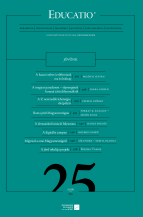A tanuló városok és régiók területi megjelenése és társadalmigazdasági mutatókkal való kapcsolata Magyarországon
Social Embeddedness of Learning Cities and Regions
Author(s): Károly Teperics, Klára Szilágyiné Czimre, Sándor MártonSubject(s): Education, Geography, Regional studies, Socio-Economic Research, Sociology of Education
Published by: Akadémiai Kiadó
Keywords: learning region; learning city; complex index; regional differences;
Summary/Abstract: Within the framework of our research on learning regions (learning cities), the attitude of the Hungarian settlements towards learning was analysed with the help of the formation of a complex index (LeaRn Index). The learning dimensions developed by Jacques Delors were used in the index-forming process. In the current phase of the work, our complex index (and its components) were compared with a socio-economic indicator (personal income tax per capita) and with complex development indicators (deprivation index, objective well-being index). Strong correlation was found between the economic development level and the formal learning values, as expected, but the absence of a similar correlation is spectacular in the case of social activity/community learning. The comparison with the complex indexes also reveals strong parallelisms, of which the strongest relationship is observed in relation to the objective well-being indicator. In general, it is true that the best LI values are linked to cities and suburban settlements, but they are also better than other socio-economic indicators in the peripheries.
Journal: Educatio
- Issue Year: 25/2016
- Issue No: 2
- Page Range: 245-259
- Page Count: 15
- Language: Hungarian

